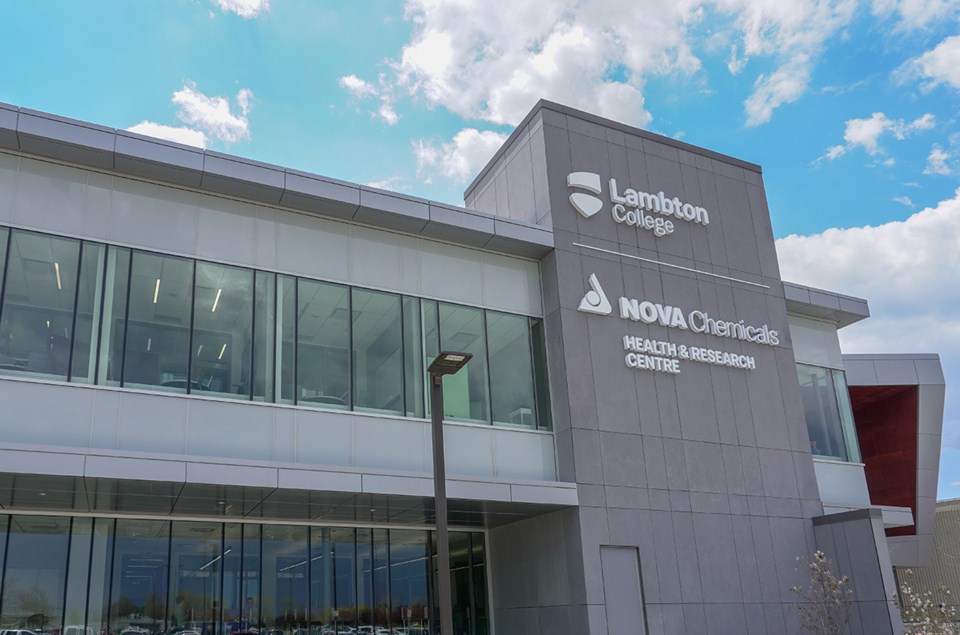Cathy Dobson
Lambton College’s biotechnology researchers have joined the race to find a vaccine for COVID-19.
Collaborative work began in May with Toronto-based Mediphage Bioceuticals on a mini-string DNA-based vaccine engineered to artificially simulate an immune response.
“Our role as a community college is to support the community, to keep it safe, and we take that very seriously,” said Mehdi Sheikhzadeh, Lambton’s vice president of research and innovation.

The college’s lab closed in mid-March when the pandemic arrived but has been slowly reopening for several projects related to COVID-19.
As many as four researchers are in the lab at any given time, physically distancing while working on growing Mediphage’s mini-string DNA using a harmless bacteria. Other student researchers are at home doing theoretical work on the project.
“It is awesome to think of Sarnia-Lambton leading the technology and perhaps being able to have a wide impact,” said Sheikhzadeh.
Around the world, an estimated 150 COVID-19 vaccine projects are underway with no indication yet when one might successfully pass clinical evaluations.
Lambton is working on one of about 20 vaccines under development in Ontario, said Stephen Raeume, the college’s research operations manager.
“There are a lot of factors in vaccine development. For instance, the virus may mutate,” he said. “We don’t want to rush this and get it wrong.
“But we have a real sense of commitment.”
Lambton College was already working on mini-string DNA research with Mediphage Bioceuticals for other applications prior to the pandemic, Raeume said.

“When COVID-19 hit, we began looking at whether that basic technology could be applied to COVID-19.”
His researchers are working on other technologies that could help slow the pandemic or reduce the disease’s damage.
In April, they partnered with Suncor Energy and Western University to develop a safer and less expensive antibody test, which could be used to see who has contracted the virus and whether they are producing antibodies.
Until a vaccine or antivirus is developed, the world is trying to curb the virus using frequent hand washing and sanitizing, physical distancing and the use of Personal Protective Equipment (PPE).
Sheikhzadeh and Raeume say their department is involved in that as well.
In partnership with The Refined Fool Brewing Company and local industry it’s producing hand sanitizer for front-line workers at Bluewater Health and Sarnia police and fire personnel.
The college is also using 3-D printers to make smaller parts that extend the life of filter cartridge masks used at the hospital.
Sheikhzadeh praised the federal government for its “very nimble” approval of about $250,000 for vaccine and viral testing research.
He is hoping to get approval for further grants to develop oxygen sensors for ventilators. Further funding will be needed if the vaccine successfully moves to the field and clinical testing stages, Sheikhzadeh said.
“Let’s hope there will be some good news coming,” he said of the college’s research. “We have put our entire focus on COVID-19 projects and we’re very glad we’ve been able to get back to the lab.
“We’re doing our best to help.”
Lambton College has received multiple national awards for research and innovation from Colleges and Institutes Canada (CICan). In May it was the silver recipient of the Applied Research and Innovation Excellence Award.
It was the sixth time in five years Lambton College had received an applied research and innovation award from CICan. The department earned gold in 2019 and 2016.
